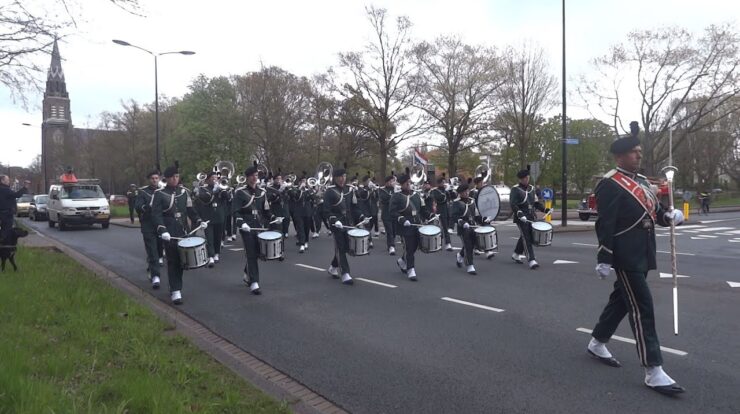
Dutch kings day – Dutch King’s Day, a vibrant celebration held annually on April 27th, is a testament to the rich history and cultural heritage of the Netherlands. Rooted in the birthday of King Willem-Alexander, this day has evolved into a national festival that fosters a sense of community and shared identity among Dutch citizens.
The festivities are characterized by a sea of orange, the national color, adorning the streets, homes, and people. Flea markets, boat parades, and live music fill the atmosphere with excitement and joy, creating a truly unforgettable experience.
Dutch King’s Day: A Celebration of History and Unity
Dutch King’s Day is a vibrant celebration that brings the Netherlands together. It marks the birthday of King Willem-Alexander, who ascended to the throne in 2013. The holiday has deep historical roots and holds significant cultural importance, fostering national unity and promoting a sense of shared identity.
History and Origin of Dutch King’s Day
The origins of Dutch King’s Day date back to 1885, when it was established as Queen’s Day to celebrate the birth of Queen Wilhelmina. The holiday was renamed King’s Day in 1948 when Queen Juliana ascended to the throne, and again in 2013 when King Willem-Alexander became the monarch.Over
time, the holiday has evolved into a national celebration that goes beyond the royal family. It is now a day for people of all ages to come together and enjoy the festivities, which include parades, flea markets, and live music.
Key Traditions and Customs, Dutch kings day
Dutch King’s Day is characterized by its vibrant atmosphere and lively festivities. The streets are filled with people wearing orange, the color of the Dutch royal family. Houses, buildings, and public spaces are adorned with orange decorations, creating a festive ambiance.Popular
activities during King’s Day include flea markets, where people sell and trade their belongings. Boat parades are also a common sight, with people taking to the canals in decorated boats. The day is filled with music, laughter, and a sense of community.
Cultural Significance and Impact
Dutch King’s Day plays a vital role in promoting national unity. It is a day when people from all walks of life come together to celebrate their shared heritage and culture. The holiday fosters a sense of community and belonging, strengthening the bonds between Dutch citizens.In
addition to its cultural significance, King’s Day also has a positive impact on the Dutch economy. The influx of tourists and the increased spending on festivities provide a boost to local businesses. The holiday also promotes tourism, showcasing the Netherlands’ vibrant culture and traditions to the world.
International Recognition and Influence
Dutch King’s Day has gained recognition and influence beyond the borders of the Netherlands. Similar celebrations and festivals inspired by King’s Day have emerged in other countries, such as Canada and Australia.The holiday has also fostered cultural exchange and global connections.
People from around the world travel to the Netherlands to experience the unique atmosphere of King’s Day. The event has become a symbol of Dutch culture and a testament to the country’s vibrant spirit.
Contemporary Adaptations and Innovations

Technology and social media have influenced the celebration of Dutch King’s Day. Online platforms provide a way for people to connect and share their experiences of the holiday. Live streaming and virtual events have also made it possible for people who cannot attend in person to participate in the festivities.New
traditions and customs have emerged over time, such as the “Koningsnacht” (King’s Night), which takes place on the eve of King’s Day and features all-night parties and fireworks. These adaptations and innovations ensure that Dutch King’s Day remains a dynamic and relevant celebration that continues to evolve and reflect the changing times.
Conclusion
Dutch King’s Day has not only become a cherished tradition within the Netherlands but has also gained international recognition. Its unique blend of history, culture, and community spirit continues to inspire and connect people worldwide, serving as a symbol of Dutch national pride and unity.
Question Bank: Dutch Kings Day
When is Dutch King’s Day celebrated?
Dutch King’s Day is celebrated on April 27th each year.
What is the significance of the color orange during the celebration?
Orange is the national color of the Netherlands and is associated with the Dutch royal family. During Dutch King’s Day, people wear orange clothing, decorate their homes and streets with orange decorations, and even dye their food orange.
What are some popular activities during Dutch King’s Day?
Popular activities during Dutch King’s Day include attending flea markets, watching boat parades, enjoying live music, and participating in street parties.